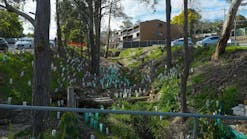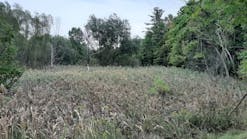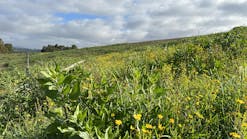Harold Wanless is used to people getting angry with him. “All I was doing was telling them sea level is rising and showing what could happen if it continued,” says Wanless, professor and chair of geological sciences at the University of Miami, where he and his students study the evolution of the coastal environments of south Florida, the Bahamas, and Turks and Caicos. When he projects a 5-foot sea level rise by the century’s end, given the rapid melting of the Greenland ice sheet, people get a false sense of security to see their home still on the map, not considering the compromised infrastructure combined with a continued projection of accelerated sea level rise into the next century, Wanless says. “How do you manage a port facility in New York, or anything when you’re on a coast where sea level is rising? Barrier islands and south Florida would be inundated to the point of not being viable places to live. Massive undertakings to build levees or storm surge barriers in places like New Orleans, the delta [of the Mississippi River], and the Netherlands can’t be conducted successfully where the soil is too porous. We have to be very careful in trying to defend something that may not be defendable.” Wanless suggests a better use of the money currently directed toward rebuilding would be for an orderly buyout of vulnerable communities.
What He Does Day to Day
In addition to teaching and research, Wanless also works with gas companies. “For years, geologists have worked with the petroleum industry to help them understand patterns that might help them find oil and gas,” he says. “Some environmentalists say we shouldn’t be doing that, but almost everybody is using fossil fuels. We need to do it efficiently. We also have to get the energy systems that will function without them.” The world is his classroom: He and his students have done field geology courses in Newfoundland and Labrador and research in the Turks and Caicos Islands and in Greenland, where they seek answers to the question of how fast the ice is going to respond to the warming of the atmosphere and the ocean.
What Led Him Into His Line of Work
In high school, Wanless fell in love with reefs, including the Great Barrier Reef, while accompanying his father, a geology professor, who spent a year at the University of Sydney in Australia. Wanless studied geology at Princeton University, then earned an M.S. degree at the University of Miami and a doctorate from Johns Hopkins’ Department of Earth and Planetary Science, where he conducted research on ancient Cambrian-age rock in the Grand Canyon, noting the effects of sea level fluctuations through geologic time.
What He Likes Most About His Work
Working with bright young students and in beautiful parts of the world is a source of pleasure for Wanless. “They get joy out of how the Earth works in all of its complexities,” he says of his students. He also likes that some adults to whom he’s lectured on climate change have gone from trying to slap him down to wanting to know what positive actions they can take.
His Greatest Challenge
Wanless is asked if he isn’t depressed giving talks about sea level rise when some people won’t heed his warnings. “Lecturing about climate change is not what I want to do, but I understand it well enough that it’s my obligation to help other people understand it,” he says. “Mayors are starting to listen. President Obama understands the reality of global warming. But the United States has a ridiculous number of people in denial about climate change. Some of it is selfish profit interests. I can’t understand the rest. There’s no way to stop the Arctic Ocean ice melt, which will lead to huge additional input of greenhouse gasses. A common estimation is there will be 200 million climate refugees by 2050. Every barrier island and large parts of deltas have to be abandoned.” Climate change is going to make dry inland areas more arid and less livable, resulting in mass migration, he says, adding: “We have to aggressively turn it around and accept we’re going to have major changes and relocations.”






